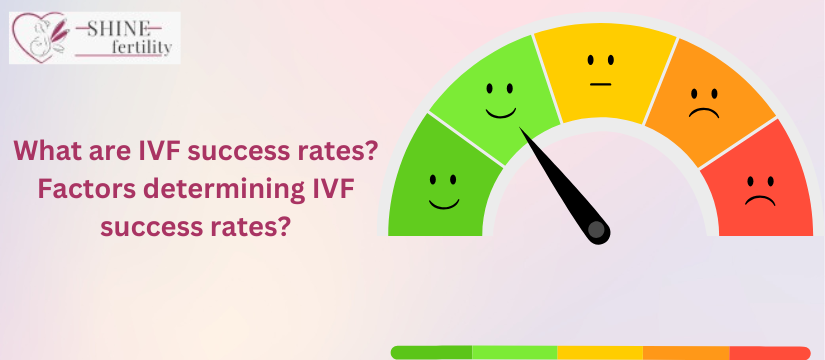“The factors which determine success rates of IVF procedures includes maternal age, respective fertility issues, donor eggs, lifestyle, and infertility clinic choice. The IVF success rates vary from 41% – 43% for age of below 35 years and 13% – 18% for age of above 40 years of age.”
IVF success rates depend on a number of factors, some are within your control, others are not. However, it’s important to understand the factors involved in individual IVF success rates and to have realistic expectations when beginning IVF treatment. The choice of best IVF centre also plays an important role.
Women with the best chance have a per-cycle IVF success rate of 40%. Most women have a per-cycle IVF success rate of more like 20-35%. These percentages should help set your expectations going into IVF and help you feel better if your first round of IVF doesn’t work.
The success rate of IVF clinics depends on a number of factors including reproductive history, maternal age, the cause of infertility and lifestyle factors. It is also important to understand that pregnancy rates are not the same as live birth rates.
Factors Determine IVF Success Rates:
- Maternal Age
- Previous Pregnancy
- Types of Fertility Issue
- Use of Donor Egg
- Lifestyle
- Clinic Choice
Here are some of the factor that determines the success rate:
1. Maternal Age:
One of the first questions asked of women considering infertility treatment as IVF is, “What is your age?”. This is because IVF success rates have been shown to decrease with age, and infertility experienced by women over the age of 35 brings a number of additional factors to consider.
2. Previous Pregnancy:
Likely, the second question a clinic asks will relate to any previous pregnancies and/or how long you have been trying to get pregnant.
A history of miscarriage can affect the success of IVF, as can previous births and/or a different partner. How long you have been trying may also speak to possible fertility issues. Tracking your fertility journey with apps such as the Shine fertility can be a helpful way to prepare for IVF and to provide your doctor with the most information possible.
3. Types of Fertility Issue:
Determining if you or your partner have any fertility issues can be a big indicator of whether IVF, an infertility treatment will work for you, and which additional reproductive technologies may be necessary to improve your chances of success. Blocked or damaged fallopian tubes, ovulation disorders, genetic disorders, and male infertility can be overcome with IVF, but identifying these factors is key to effective treatment.
4. Use of Donor Egg:
Good egg quality and the age of the donor are significant considerations for IVF. If you’re over 40, using donor eggs from younger women can increase the success rate of IVF. Also, fresh donor egg sees higher success rates than frozen eggs usage in infertility treatment.
5. Lifestyle:
Weight and the history of smoking can both effects IVF success rate. Being overweight may influence the medication needed to be successful with IVF and may influence the women’s egg quality. Smoking also diminishes egg quality and can disrupt ovulation and fertilization.
6 Clinic Choice:
The last factor in the likelihood of a successful IVF procedure is your clinic choice or best IVF centre choice. Some clinics claim higher success rates than others and charge accordingly. However, higher success rates could be associated with only taking on patients with the most optimal chances of success, or having a smaller patient population overall.
Success Rates of IVF:
41-43% for women under age 35
33-36% for women ages 35 to 37
23-27% for women ages 38 to 40
13-18% for women ages over 40.
For a quick workup of what your success rate might be, there are a number of online calculators that estimate your chances of IVF success using basic personal information. IVF predict and IVF success rate are two such calculators.
To know more about expert tips, read about getting pregnant after IVF Treatment. Also, read about Difference between Intrauterine Insemination (IUI) and In Vitro Fertilization (IVF) if you are looking for IUI treatment for fertility issues.
Disclaimer:
The content provided in this blog regarding surrogacy and fertility treatments is intended solely for informational purposes and should not be interpreted as legal or medical guidance. Laws and regulations related to fertility and surrogacy can differ significantly by region and may evolve. We advise consulting with experienced legal and medical professionals to receive tailored advice suited to your circumstances. ShineFertility disclaims any liability for actions taken based on the information presented in this blog.

